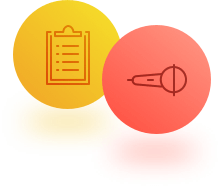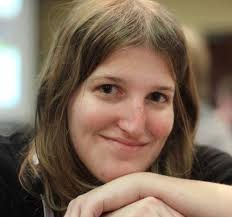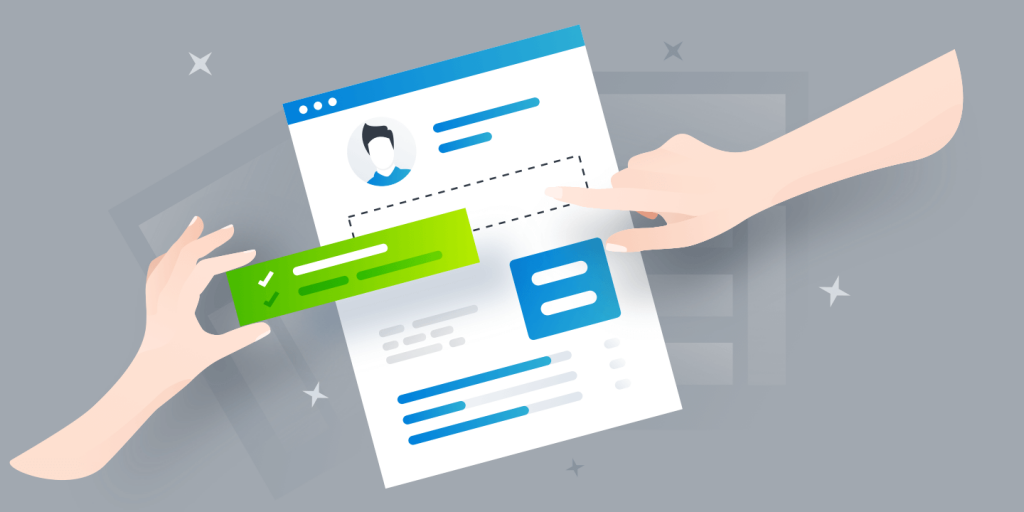Having a formal customer service job interview structure will help you effectively assess the strengths of each candidate.
Before I dive in, this post is going to have some questions that you can ask candidates who are applying for customer service jobs. You may want to copy and paste all – or many- of the questions listed below and ask them in every customer service job interview. That’s the worst thing you can do.
The best interviews are conversations instead of a scripted Q&A session.
If you approach it as a conversation and you use these questions as talking points, you’ll learn a lot more about each candidate and their strengths, weaknesses, personality, culture fit potential, and past experiences.
In this post, I’m going to share a framework for how to structure your next customer service job interview.
Note: prepare in advance but don’t be afraid to abandon your notes and questions
The candidate shouldn’t be the only one preparing for the customer service job interview. The interviewer should also spend some time going through their resume and looking through any online resources they’ve shared (like a blog or LinkedIn profile).
This will help you identify concerns or questions you have about their past experience.
You may want to jot some notes and questions that you want to ask them, but don’t be afraid to abandon your notes and let the flow of conversation guide you.
 Customer Service Job Interview
Customer Service Job Interview
The simplest form of a customer service job interview has four parts: an intro, the resume review, situational questions and time for any of their questions. Here’s an explanation of each part:
Start with simple questions to build rapport
There’s a lot at stake for someone interviewing for a customer service job. Most people are going to be understandably nervous. When you launch into your version of “20 questions,” it is just going to make them more nervous and have their guard up that much more.
One great way to lessen this nervous energy is to start with a question that’s easy to answer and will put them more at ease.
Before starting to ask any questions, introduce everyone involved in the interview with their name, title and how long they’ve been with the company. It’s also a good idea to let the applicant know the format of the customer service job interview.
You’ll walk through their resume, ask a few situational questions and then there will be some time at the end for them to ask any questions they have.
Helping the applicant feel at ease will help them put their best face forward, so you have a better idea of what they are really like. Here’s a few questions that can work well to build rapport:
- How was your weekend?
- What do you like to do for fun?
- What’s the last book you read or movie you watched?
Establish that they are qualified for the role
These are the technical customer service questions to learn more about their past experience. Here’s a few talking points and questions that you can use.
- Walk through their resume from the oldest to most recent role asking them about their responsibilities and experience there. Why did they move on?
- Pick one relevant accomplishment from their resume and ask them to share more about it.
- Describe a time where you had to learn a new piece of technology or software. How did you go about learning this new tool?
- What’s one skill that you learned in the last year that’s made you better at your job?
- What’s one thing that you want to learn in the next year?
By and large, this should be the shortest part of the customer service job interview. If you’ve done your research, you’ve already figured out if they’re qualified – otherwise you wouldn’t have invited them to an interview in the first place.
The responses they share should help you spot any inconsistencies and understand their work style better. For example:
- Do they know what they claim to know in their resume and cover letter?
- Are they a team player? Do they talk about others they work with and have learned from? Or is everything centered around them?
- Do they take responsibility or blame others for their problems?
Spend the majority of your time evaluating soft skills
These are the “people skills” that focus on how you interact and build relationships with your coworkers and customers. Hard skills are generally easier to train for – while soft skills are difficult to develop quickly.
These are things like empathy, listening skills, communication skills, patience, self awareness, emotional intelligence, problem solving and deal-making.
Possessing these soft skills are what separates the great customer service professionals from the mediocre ones. They are also the same things that are impossible to figure out without having a conversation with them over the phone, on a video call or in-person.
This is where structuring your time as a conversation versus an interview comes in handy because the best way to figure out if they possess these necessary skills comes from examples and their own experiences.
Take these examples for the following soft skills:
- Problem Solving: If you want to learn if they are a great problem solver, have them walk through the step by step process they used to troubleshoot and resolve an issue. Ask for the details. Ask why they did it that way. Ask if they’d do anything different the next time.
- Empathy: If you want to understand if they are empathetic, ask them about how they handled a situation where they had to say “no” to a customer. What skills did they employ in the conversation?
- Communication skills: If you want to understand their communication style, you can ask them about a time where the product had a major bug or outage, and how they responded. This question is great because you see a bunch of different soft skills at once including empathy, patience, listening and of course communication skills.
If you find that they are defaulting to theorizing instead of sharing specific experiences, that’s usually a red flag. They probably don’t have much experience in that skillset or topic.
These situational conversations work best when you listen and respond to what the applicant is saying to understand the “why” behind their answer.
You want to understand how they think, not just what they’ve done.
Leave plenty of time for questions at the end
A great conversation is two-sided. You want to make sure to leave enough time for a candidate to ask any questions about you, your team and your company. I can guarantee you that any great candidate will have at least a couple thought-provoking questions.
It is a huge red flag if the candidate has no questions to ask you. This means that either they haven’t done enough research leading up to the customer service job interview or they are just looking for “a job” instead of wanting to work at your company.
Another red flag is if they only ask questions of the “what’s in it for me” variety?
If all of their questions are about your lunch break policy, how often you give out raises, ping pong tournaments and company happy hours, then it is usually a sign that they are more interested in the perks instead of the actual work.
 Tips for improving your interview style
Tips for improving your interview style
Don’t ask cliche questions.
If you’ve made it this far into the post, you may have noticed a theme. The best questions are the ones that put the candidate in a much relaxed space and lead to them to tell stories and share past experiences.
The absolute worst thing you can do is ask a bunch of cliche questions that are unoriginal and have been asked 500,000 times already.
Here’s a few examples of cliche questions:
- What does a great customer service look like for you?
- What does bad customer service look like?
- What’s your biggest weakness?
- What’s your biggest strength?
- Why should we hire you?
These questions are predictable, and will lead to overly polished answers that tell you nothing new.
While I’d encourage you to avoid these questions altogether, you find yourself asking one of these questions. Be prepared to listen and ask a ton of follow-up questions so that you can cut through the rehearsed response and hear actual stories and experiences.
The most cringe-worthy and loaded question is:
- Where do you see yourself in 10 years?
You are essentially baiting anyone who wants the customer service job to say one of two answers: either they will want to “keep getting better at customer service and moving up the career ladder” or “still be working at your company.”
These are both BS answers, and everyone knows it. 10 years is a long time. If the candidate has any ambition, their goals are going to change at least a little bit over the next 10 years.
Most great interview conversations last between 45-60 minutes
A pro tip is to give yourself some “padding” in between interviews. Some people are more long-winded then others. If you find yourself immersed in a great conversation, you don’t want to have to cut it off right at 30 minutes and before they’ve had a chance to ask any questions.
On the contrary, if 10 minutes into the customer service job interview, you realize this person is not going to be a good fit for the role, it is okay to end early.
A few more general tips for structuring your interviews:
- Ask them “to share what they did” instead of taking about “what they know.”
Actions and experiences trump theories and book knowledge every time. You can learn so much more about a person by their actions. If you have someone who defaults to talking in theories, ask them follow-up questions to get them to share actual examples and experiences. If they can’t share any experiences, that’s a red flag. - Don’t be afraid of awkward silences.
Awkward silences come with the territory. Rushing to fill them with another question is going to be your instinct. However, it usually means the person is thinking through their answer. If you give them a few seconds, they are probably going to come back with an interesting example or perspective. One that you’d never get if you simply rushed to the next question. - Pay attention to their body language and eye contact.
Sudden changes in their demeanor or failure to make eye contact can tell a lot about what they are excited about and also when they are not sure or lying about something.
 Interviewing for success
Interviewing for success
Having a formal customer service job interview structure will help you effectively assess the strengths of each candidate. Asking great questions will help you get deeper into their skill set and have a better idea of why they work the way they do.
Here’s all those questions again, which you can download for your reference. Have a favorite? Let us know 🙂










